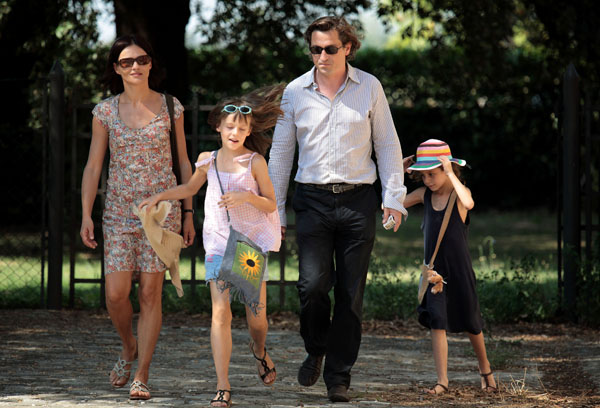|
Reviews of Recent Independent, Foreign, & Documentary Films in Theaters and DVD/Home Video

THE FATHER OF MY CHILDREN It is very possible that the reason so much contemporary European cinema feels vital and new to me is because I have been so conditioned by Hollywood films. Even most American indie films, for the most part, take their cues from or have been co-opted by Hollywood conventions. When confronted with a film like Mia Hansen-Love’s The Father of My Children, a very minimalist and beautiful piece of cinema, I am stunned. Why? I ask because I wonder if I had been raised in Europe, if this would just be another amazing film in a panoply of amazing films and, therefore, ordinary. Is it fantastic because of the cultural differences? Am I a sucker for a film that simply sidesteps my expectations which have been built up by American cinema? I ask these questions not to take away from Children, but to examine why it’s such a good film. Certainly part of it is that European art films run by different conventions. They perhaps feel more interesting because of their otherness. Children has more than that otherness though. There’s something deep and existential in the film, and Hansen-Love does an amazing job of setting it up. Grégoire (Louis-Do de Lencquesaing) is a dedicated family man and an acclaimed, though cash-strapped, film producer. He shares a Parisian apartment and a country home with his Italian-born wife and three daughters. In the first half, the film is an amiable slice of life that revels in the quotidian without ever making it feel banal. Part of my inherent expectations is that doom is always around the corner for the family because, of course, no director spends this much time on daily life without there being a major turning point. Really, though, it’s a very simple family drama, acted beautifully and genuinely and shot with a lot of tracking shots—that is, in a naturalistic style. As an audience, we are sucked into Grégoire’s family and business, and slowly, the real drama leaks into the everyday, but the movement is so slow and so careful that we are taken aback when the film’s true dramatic center rears its head. Hansen-Love deftly controls our response. Because her film’s firmly planted in the real and the commonplace, and because many of us are conditioned by American films to expect more, we at first are on edge and then are lulled into rapt attention, only to have our original expectations eventually met. Because of Hansen-Love’s sleight of hand, the impact hits even harder.
Financial matters are a large part of Children, and one of the
truly interesting things the film does is to give expression to what is
truly one of the most dominant existential dilemmas of our time:
financial desperation. With the global financial meltdown chugging
away—especially in Europe—Grégoire’s problems are universal. The
trapped feeling of being unable to pay debts, that sinking in your
stomach, and the inability to do anything about it—these are incredibly
dense issues, and Hansen-Love does an incredible job of depicting them
without being didactic or expositional. There are no solutions, just
choices. Andrew Beckerman
|

